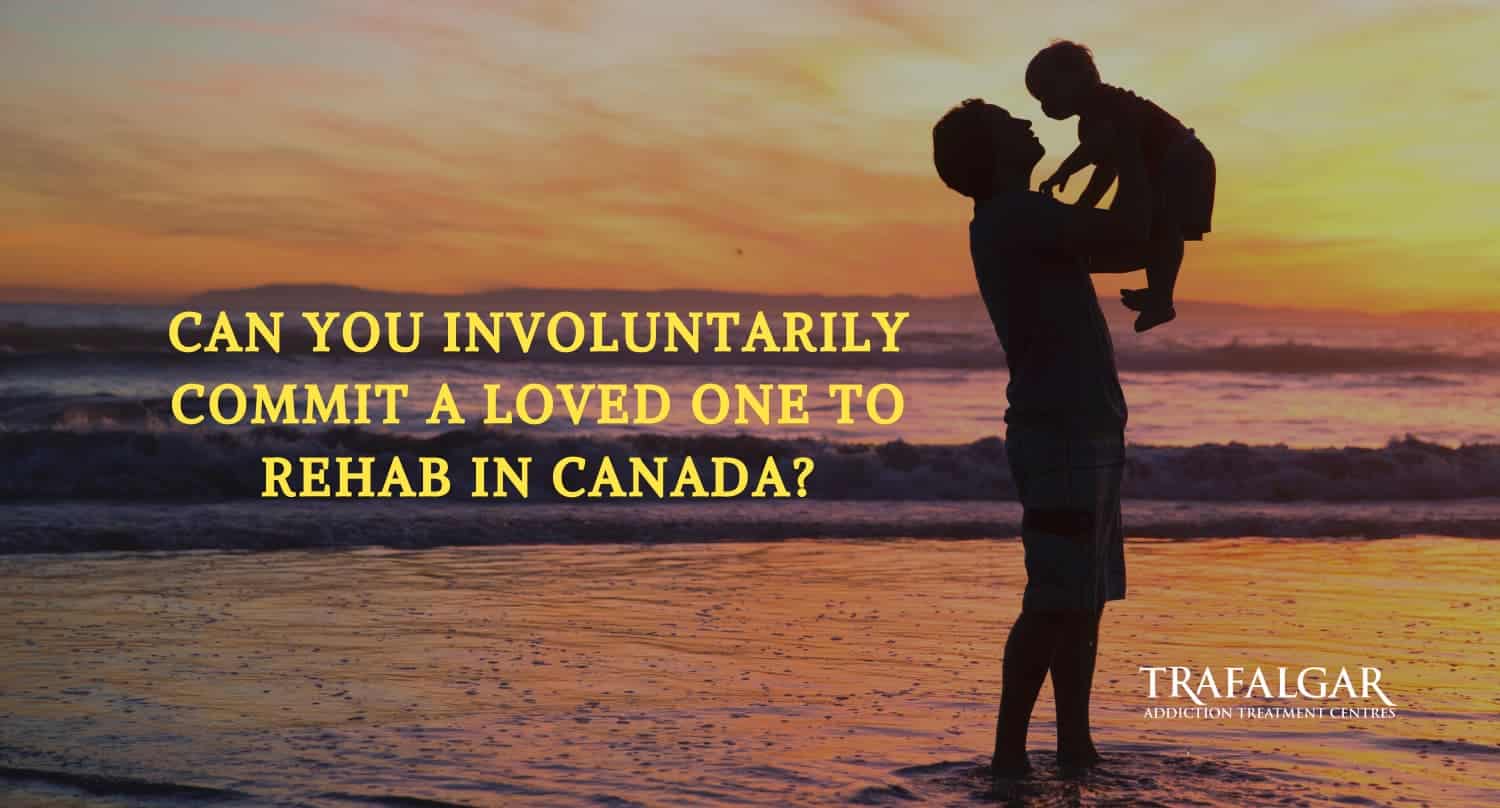
If a family member or someone you love is addicted to alcohol or drugs, you want to help them. However, most alcoholics, drug addicts and even some compulsive gamblers don’t think they need help, even if they are sick, bankrupt, or in trouble with the law.
It is also not easy to convince a person who needs treatment for sex addiction or porn abuse.
How can you help the person you love if he says No?
Many parents, spouses, and friends of addicts wish they could commit the person in question to an institution to detox and get rehabilitated. However, pursuing involuntary or forced commitment may be more complicated than you realize.
Here are five things you need to know about how to have someone committed to rehab for drug addiction.
💡 Another Option: “Addiction Rehab At Home”
If applicable, your loved one can also get structured and comprehensive addiction treatment in the comfort of their home, at their convenience.
Explore the Virtual Addiction Treatment option below as it may be easier to commit for your loved one.
Addiction Rehab At Home
We offer a 4-week intensive virtual program:
A new alternative to residential treatment.
And yes, it works.
Call For A Free Consultation
1. Canada Has Strict Laws about Hospitalizing Anyone without Their Consent
Health in Canada is considered to be a local matter. This means that each province will make its own rules. The laws governing involuntary commitment may not be uniform across the country.
Generally, under Canadian law, if someone has mental capacity, they must give consent to be treated. The doctor is the person who will decide if they have the capacity to do so.
Thus, if your loved one doesn’t appear to be extremely affected by his addiction, or if he can still appear rational, he may be seen as having mental capacity.
If a doctor determines they have the capacity to decide for themselves, you will not be able to commit them.
2. A Doctor Must Determine They Are a Danger to Themselves or Others
The law in Ontario regarding involuntary commitment for drug addicts is the same as the laws concerning people with mental illness. If their addiction has impaired their ability to give consent, they may be admitted to care under a certificate of Involuntary Admission.
A doctor will take into consideration behaviors that are dangerous. For example, if your loved one has threatened suicide or performed other acts of self-harm, that may be enough to get them committed.
If they have lashed out at you physically or menaced you with violent activity, that may demonstrate enough evidence that they’re a threat to others.
3. A Doctor Must Attest That Their Condition Is Deteriorating
Not all drug addicts or alcoholics behave in a way that is suicidal or homicidal. However, if their alcohol use disorder or drug addiction is impacting their health, relationships, career, and lives, they need assistance.
If a doctor observes severe deterioration, he can order a psychiatric assessment. The person will be temporarily hospitalized without consent for up to 72 hours.
In Ontario, any doctor can file an application for a psychiatric assessment of an individual – and the public authorities must detain the person. The physician must give that person written notice of the application and cite their reasons.
Sometimes, being hospitalized for even a short period is enough for a drug addict to admit they need help. Then they can consent to go to rehab.
4. Sometimes You Can Convince Them to Commit Themselves
Because it’s so challenging to put someone in forced rehab in Canada, many families attempt to convince the drug addict that they should do it themselves.
Sometimes, an intervention facilitated by a trained professional can have positive results. Faced with the love and concern of the people he cares for, an addict may decide to seek treatment and agree to voluntarily go to a rehab center.
The involuntary commitment must also be periodically renewed. A Certificate of Involuntary Admission lasts for up to two weeks. After this, a doctor may issue a Certificate of Renewal. These must be renewed every couple of months.
Once an addict has been removed from the situation where they can easily obtain drugs, they may be more open to treatment. If she has gone through detox and begun therapy or 12-step work while in the hospital, she may agree to extend her treatment voluntarily.
If you get an addict to take the first step on the path to recovery, you may well convince them to keep going.
A New Alternative to Residential Treatment
We offer a 4-week intensive virtual program:
A new alternative to residential treatment.
And yes, it works.
Call For A Free Consultation
5. There Is Hope
The requirements for forcing someone into treatment may seem strict when you’re trying to get care for someone you love.
However, recovery rarely works when it is forced upon someone. If you can convince the addict in your life to admit they need help, you’re far more likely to get a positive reaction.
Forcing someone into treatment against their will is not usually a recipe for success amongst drug addicts.
One symptom of addiction is denial: they can’t see that there is anything wrong. Another symptom is defiance. Addicts don’t like to be told what to do.
But if you need to take sudden drastic action, the law will allow you to do so in some cases.
Once the addict in your life is actually hospitalized, whether voluntarily or involuntarily, they can begin to get clean. Withdrawal can be painful and dangerous, so it’s always better done under medical supervision.
As soon as the body is clean of drugs, professionals can help guide the addict through a variety of methods (like outpatient counselling or residential addiction rehab) to help them overcome cravings.
How to Have Someone Committed: It May Save Their Life
If you’re thinking about how to have someone committed, you are taking a difficult step.
It can be frightening to confront an addict and beg them to get help. It can seem hopeless when they refuse to admit they have a problem.
If you believe that the addict you love is in danger of hurting themselves or others, you should contact medical and mental health professionals immediately. Do the same if their physical appearance is so deteriorated that their life seems to be at risk.
By speaking with rehab experts, you can learn more about the legal, medical, and psychological challenges of committing someone. They may also give you some strategies that will help you support your loved ones.
For more information on helping someone who is addicted to drugs, contact us!
About Us
Consult with a professional now to learn how we can help you or your loved one.






